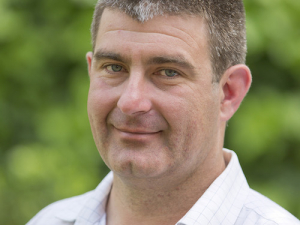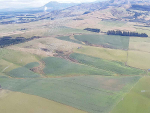Labour's proposal to impose a water tax on irrigators will lead to more intensive farming, says IrrigationNZ chief executive Andrew Curtis.
A survey by IrrigationNZ found 40% of farmers will increase the number of stock on their farm to pay for the water tax.
About 63% of farmers and growers said they would reduce their spending in local communities; over 80% of farmers are already doing environmental improvement work such as fencing streams or riparian planting but half of those surveyed said they would have to reduce their spending on this to pay the water tax.
Curtis says the survey raises serious concerns about the potential unintended effects of a water tax and whether these outcomes are desirable.
“Environmental lobby groups who support a water tax blame intensification for water quality issues but our survey shows the water tax is set to lead to more intensive farming as well as reduce spending on environmental improvements and spending in rural communities.
“The tax would not just affect farmers but the rural economy, with the potential for job losses in local shops and businesses in many areas of New Zealand.”
IrrigationNZ surveyed 124 farmers to gather information on the potential impact of the water tax (at 2 cents/1000L).
Of the 59 arable, sheep, beef or mixed cropping and sheep or beef farmers participating in the survey, 48% said they would consider converting their property to other uses such as dairying, dairy grazing, horticulture and more intensive activities to make their farms viable enough to fund the cost of the tax.
Two property owners said they would consider selling up.
One arable farmer explained his reasons for considering converting: “We have continued to hold off converting to dairy, while many around us have done just that. We believe we are doing a good job, but every year our bottom line is diminishing, while we work harder and are more productive. Soon dairying will be our only viable option.”
Curtis says many people would assume that taxing water would result in less water being used, however the results indicate farmers would have less money to spend on more efficient irrigation systems and less to spend on crop monitoring to apply water only when needed.
“Equally, the comments from arable, sheep and beef farmers indicate that many of them would consider moving to more intensive farming such as dairying which would consume more water – not less.”











